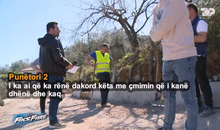
 Flash News
Flash News
At first he ridiculed them as 'flying carpets' and then he adopted them/ 7 themes and promises that Edi Rama copied from Sali Berisha in this campaign
Edi Rama's return to the (losing) 2011 campaign
The US withdraws from peace negotiations between Ukraine and Russia.
Vice President Vance's statement distributed by the American Embassy: Where did he say it, in what context, and how does it relate to Albania?
Photo/ Half-naked and bloody, the moment when the perpetrator of the murder in Shkodra is escorted
Reporters Without Borders: Deterioration of media freedom in Kosovo
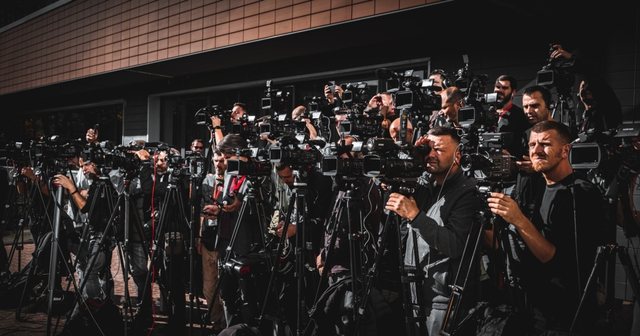
Kosovo has recorded the biggest decline in the last 15 years in the annual press freedom index of the organization Reporters Without Borders, ranking 99th in the world out of 180 countries.
This is the second consecutive year that Kosovo has recorded a decline, as in 2024 it fell from 56th place to 75th.
In the report published by Reporters Without Borders on May 2, on the eve of World Press Freedom Day, Kosovo ranks worst in the Western Balkans and the European Union.
The Association of Journalists of Kosovo (AGK) said it is "alarmed by the new, drastic decline" of Kosovo in the ranking of the annual press freedom index.
"AGK is deeply concerned about this ranking, the lowest in a decade, since 2015. However, it sees it as a reflection of a continuous active hostile policy of the last two years led by the Government of the political party, Vetëvendosje," the AGK's reaction said.
This association invited institutional and civil society actors to work together to improve media freedom in Kosovo.
Meanwhile, the legal advisor at the European Center for Press and Media Freedom, Flutura Kusari, has listed several reasons that, according to her, have contributed to the country being ranked in the lowest position.
"Political attacks on journalists, specifically mentioning the unfounded accusation against journalists that they are allegedly collaborating with the enemy; Radio Television of Kosovo; Law on the Independent Media Commission; Boycott of the media before the elections; Non-implementation of the Law on Access to Public Documents; Surveillance of journalists; Police and prosecution investigate cases, but do not file indictments and Strategic Lawsuits Against Public Participation," she wrote on Facebook.
Kusari also called for the urgent establishment of a national committee for media freedom and journalist safety, in order to halt the downward trend "through concrete measures and state policies."
"But, there is a prerequisite for this: The Vetëvendosje Movement must stop attacks on journalists and the media and extend a hand of cooperation to the media and civil society organizations," she wrote in another Facebook post.
The Reporters Without Borders report found that in Kosovo, Slovakia, Bosnia and Herzegovina and Serbia, the media are facing an existential crisis due to budget cuts and political control.
Last summer, despite heavy criticism, the Kosovo Assembly approved a law on the Independent Media Commission (IMC), which, among other things, provided for the licensing of online media, their supervision, and fines of up to 40 thousand euros.
This week, the Constitutional Court of Kosovo struck down this law, after finding that some articles of the law were not in accordance with the country's Constitution.
As for the law on the IMC – now repealed – Reporters Without Borders described it as controversial and “risks further impeding the independence” of the IMC.
Meanwhile, earlier this year, the ruling party, Vetevendosje Movement, was criticized for boycotting the media.
In January, international and local non-governmental organizations called on Vetëvendosje to abandon its boycott of certain media outlets.
Vetëvendosje had said that it was not boycotting the media, but was "excluding" three specific channels and that such a decision "did not harm Kosovo's rich and diverse media landscape."
She did not mention names, but previous reactions from media organizations indicated that it was about some of the major television stations in the country, such as Klan Kosova, TV Dukagjini and T7.
"Ahead of the general elections, several private media outlets were boycotted by the Government, which also threatened the independence of the public broadcaster, RTK. Serbian-language media outlets, which are under pressure from Serbian political forces, have complained of discrimination in terms of access to public information, particularly in their own language," the Reporters Without Borders report said.
In 2024 alone, the Kosovo Journalists Association recorded 24 cases of attacks and threats against journalists. In 2023, the number was higher, 53 cases of attacks or threats against journalists.
Reporters Without Borders said journalists are often the target of insults and fake news on social media. They are, according to the report, "unfairly accused of 'collaborating with the enemy,' rhetoric used by political and religious groups."
"In recent years, many journalists have been subject to threats and physical attacks by criminal networks and also due to political tensions between Pristina and Belgrade. Some journalists have been the target of wiretapping. Although attacks are investigated by the police and prosecution, they rarely result in criminal prosecution," the report said.
Meanwhile, Albania ranks 80th, marking an increase compared to 2024, when it was ranked 99th.
The report found that the media landscape in Albania – like in Greece, which ranks 89th – is characterized by conflicts of interest.
Of the other Balkan countries, Montenegro ranks best, in 37th place, followed by North Macedonia in 42nd place, Bosnia and Herzegovina in 86th, and Serbia in 96th.
The report also highlights that independent media in Europe and Central Asia are facing an unprecedented economic crisis, exacerbated by the immediate halt to US aid and the growing influence of Russian propaganda.
The report mentions, among other things, the efforts of the administration of US President Donald Trump to suspend funding for Radio Free Europe/Radio Liberty./REL
Latest news


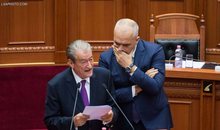
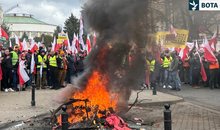
Analysis: Why is EU-Ukraine trade at risk of becoming less free?
2025-05-02 20:54:39


Refused asylum in Italy, 15 migrants sent to Gjadri camp
2025-05-02 20:30:04
Edi Rama's return to the (losing) 2011 campaign
2025-05-02 20:22:18
Moments of panic in Stuttgart/ Car "runs" into crowd of citizens
2025-05-02 20:02:06

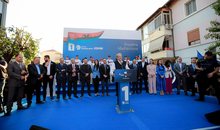
Berisha: Rama travels twice as much as the US president
2025-05-02 19:00:58

Phoebe Gates accidentally reveals that Bill Gates has Asperger's syndrome
2025-05-02 18:45:02

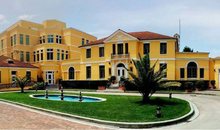
US against "birth tourism": Parents who abuse tourist visas risk entry ban
2025-05-02 18:09:59

Elona Lalaj appointed General Director of Tirana Municipal Police
2025-05-02 17:33:39
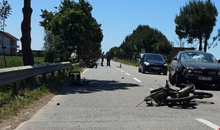
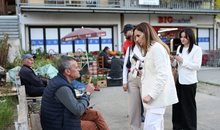

Nallbati challenges SP opponents to a public debate in the center of Devoll
2025-05-02 16:53:26
The US withdraws from peace negotiations between Ukraine and Russia.
2025-05-02 16:42:13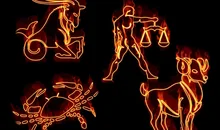
Zodiac signs that always know when you're lying to them
2025-05-02 16:27:17
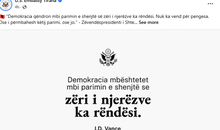

Trump makes changes to his inner circle
2025-05-02 15:56:38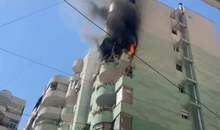
Fire in an apartment on "Tish Daija" street in Tirana
2025-05-02 15:41:27

Who can stop the price increase?
2025-05-02 15:08:52


Trump makes changes to his inner circle
2025-05-02 14:34:04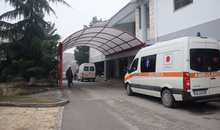
Theft at Korça hospital, nurse and patient robbed
2025-05-02 14:33:14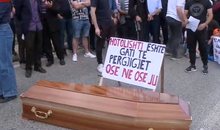
Hotolisht residents warn Rama-Balluk: Either us or you
2025-05-02 14:21:58
May 11th Elections, US Embassy in Tirana distributes JD Vance's message
2025-05-02 14:07:14
Germany declares AfD party an extremist group
2025-05-02 13:59:52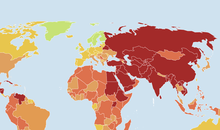

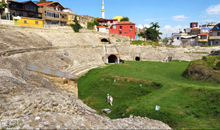
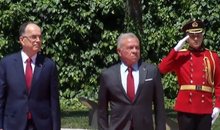
Begaj hosts King Abdullah II of Jordan with a state ceremony
2025-05-02 13:10:20

Italian MP: Vote for a great man like Berisha to change your destiny
2025-05-02 12:53:19
Florenc Çapja extradited from Dubai today
2025-05-02 12:39:21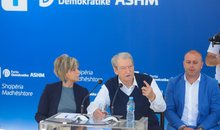
Berisha: Every village will have the infrastructure of city neighborhoods
2025-05-02 12:30:53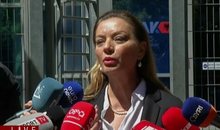


For a month in Albania, the tourist couple appeared happy on social networks.
2025-05-02 12:04:09
Bozdo meeting with farmers in Dimal: DP commits to real support for agriculture
2025-05-02 11:53:43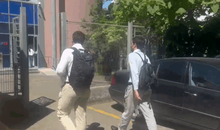
Diaspora for a Free Albania reports Belinda Balluku to SPAK
2025-05-02 11:41:15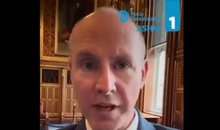
British Lord Supports DP in Elections: It's Time for Change in Albania
2025-05-02 11:32:48
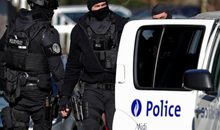
Anti-drug operation in Belgium, Italian-Albanian gang destroyed
2025-05-02 11:10:36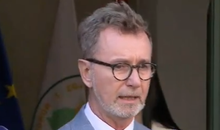
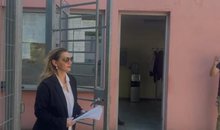
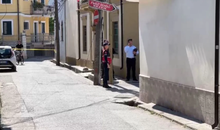
Murder in Shkodra, tourist stabs wife to death, shoots himself
2025-05-02 10:33:08
Compulsory insurance: Risk premiums between companies vary by up to 82%
2025-05-02 10:21:22
The DP electoral office in Cërrik is robbed
2025-05-02 10:11:07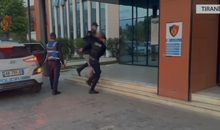

Under investigation in Erion Veliaj's file, Ajola Xoxa appears before SPAK
2025-05-02 09:49:42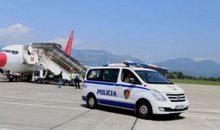
Hostage-taking and extortion, two young men extradited from Germany and Italy
2025-05-02 09:42:58
Reporters Without Borders: Deterioration of media freedom in Kosovo
2025-05-02 09:29:40
The DP headquarters in Cërrik was robbed during the night
2025-05-02 09:12:45

Olive oil remains in stock again, exports drop 75% for the period January-March
2025-05-02 08:49:08
Foreign exchange, the rate at which foreign currencies are sold and bought
2025-05-02 08:41:51
Early signs of dementia in young people in their thirties that are often ignored
2025-05-02 08:37:46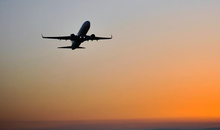

Horoscope, what do the stars have in store for you today?
2025-05-02 08:17:26
High temperatures, thermometer marks 31 degrees Celsius
2025-05-02 08:04:18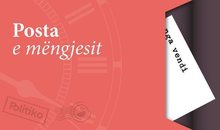
Posta e mëngjesit/ Me 2 rreshta: Çfarë pati rëndësi dje në Shqipëri
2025-05-02 07:49:13

DP candidate: Patronage agents follow us in cars during electoral meetings
2025-05-01 22:40:28

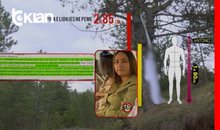

Forza Italia MP: Only Sali Berisha as Prime Minister can lead Albania to Europe
2025-05-01 21:29:47

For those who were scared by Tomorr Alizoti
2025-05-01 21:05:21
Berisha challenges Rama: You promised free healthcare, come here and keep it!
2025-05-01 20:56:58



The six best foods against stomach bloating
2025-05-01 20:04:09
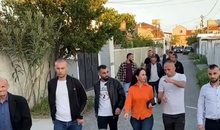
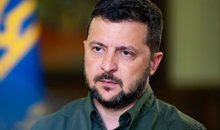
Zelensky: We want peace, Russia responds with attacks
2025-05-01 19:22:07
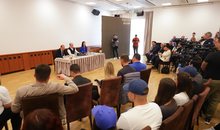
Berisha: The contract in the US is not just for the DP, but for every Albanian!
2025-05-01 19:08:14
Fight between teenagers, 15-year-old ends up in hospital
2025-05-01 18:44:17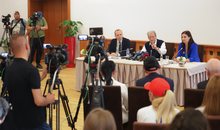


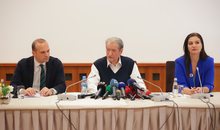
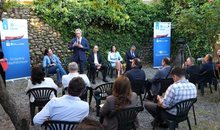


Demi Moore named the most beautiful woman in the world for 2025
2025-05-01 17:34:10
Waltz to step down as Trump's national security adviser
2025-05-01 17:24:25
